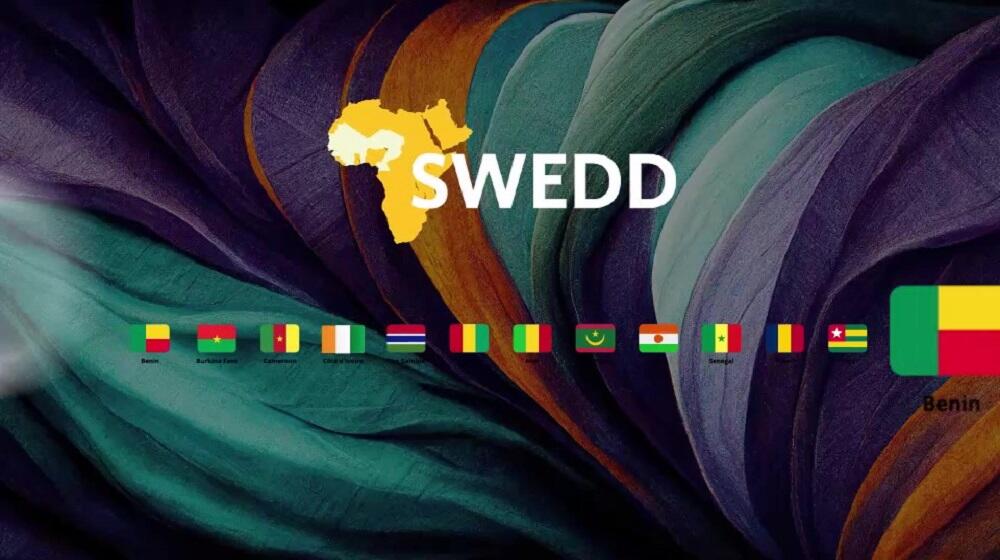Ouagadougou, Burkina Faso - The 7th ministerial session of the Regional Steering Committee of the Sahel Women Empowerment and Demographic Dividend (SWEDD) Project convened from February 26-29, 2024, in Ouagadougou, Burkina Faso. The gathering marked a jubilant celebration of the transformative impact achieved by SWEDD across Sub-Saharan Africa.
SWEDD, a visionary initiative launched in 2015 with the backing of an $850 million investment from the World Bank, has been instrumental in empowering women and unlocking the demographic dividend. One of its standout achievements includes enabling over 903,504 new users to adopt modern contraception methods, granting them greater control over their reproductive health and contributing to the reduction of unwanted pregnancies and maternal and child health complications.
Originally comprising six countries, SWEDD has expanded its reach to 12 nations by 2024. The 7th ministerial session witnessed the participation of 13 countries, with eight represented at ministerial level and three by senior officials. Gabon also participated as an observer, totaling 110 participants. The meeting served as a platform to review progress, address gaps, and strategize the project's next steps.
The 7th ministerial session of the CRP, the governing body of the SWEDD Project, was preceded by a meeting of country coordinators and regional organizations (Economic Community of Central African States and West African Health Organization), the World Bank and UNFPA WCARO and 7 Resident Representatives from SWEDD countries, to review progress and gaps and prepare decision-making documents for the CRP.
SWEDD has emerged as a potent force for regional integration, prioritizing the empowerment of women in public policy. Through its interventions, the project aims to improve the well-being of women and girls, with remarkable results achieved by 2023.
Continuing to improve the well-being of women and girls
Through SWEDD, the skills of 400,760 girls have been strengthened in safe spaces, equipping them with the knowledge and abilities essential for their personal and professional development. Additionally, the economic empowerment of 139,538 girls has been realized, providing them with employment and entrepreneurial opportunities while fortifying their financial management skills.
Moreover, the economic support extended by SWEDD has paved the way for 1,050,472 girls to continue their education, thus bolstering their prospects for the future and breaking the cycle of poverty. This investment in girls' education has yielded remarkable results, with a staggering 96% retention rate of adolescent girls enrolled in secondary schools thanks to SWEDD interventions.
The project's commitment to inclusive development is evident through initiatives such as the establishment of 8,473 clubs for husbands and future husbands, fostering greater male involvement in gender equality and reproductive health issues. This inclusive approach aims to reshape societal norms and promote egalitarian relationships, fostering a brighter future for all.
SWEDD's impact extends beyond the classroom, with more than 633,441 adolescent girls benefitting from schooling-related interventions, ranging from transport to accommodation and additional classes. Such holistic support ensures that girls have access to the tools and resources necessary for their educational journey.
Lasting impact & strengthening South-South cooperation
Looking ahead to 2024, the focus shifts towards translating these quantitative achievements into lasting impacts on the daily lives of women and girls, while expanding the project's footprint to new countries in the region..
During the session, Burkina Faso assumed the presidency of the Regional Steering Committee for a one-year term, with Benin serving as Vice President.
Additional funding pledged by the World Bank
The World Bank has pledged additional resources to support adolescent empowerment initiatives and cross-border partnerships. Meanwhile, the UNFPA SWEDD Project's Regional Technical Secretariat is working to ensure a smooth transition for countries whose funding is set to expire in December 2024.
Emphasizing the regional nature of the project, the SWEDD Project's Regional Technical Secretariat is committed to strengthening South-South cooperation, transferring capacities to country teams, and scaling up best practices to realize women's full potential for economic and social development.
The 7th ministerial session of the SWEDD Project's Regional Steering Committee not only highlighted these remarkable achievements but also underscored the collective commitment to advancing women's empowerment and unlocking the demographic dividend in the Sahel region. As the project looks towards the future, the spirit of positivity and progress remains unwavering, illuminating the path towards a brighter, more equitable tomorrow.


